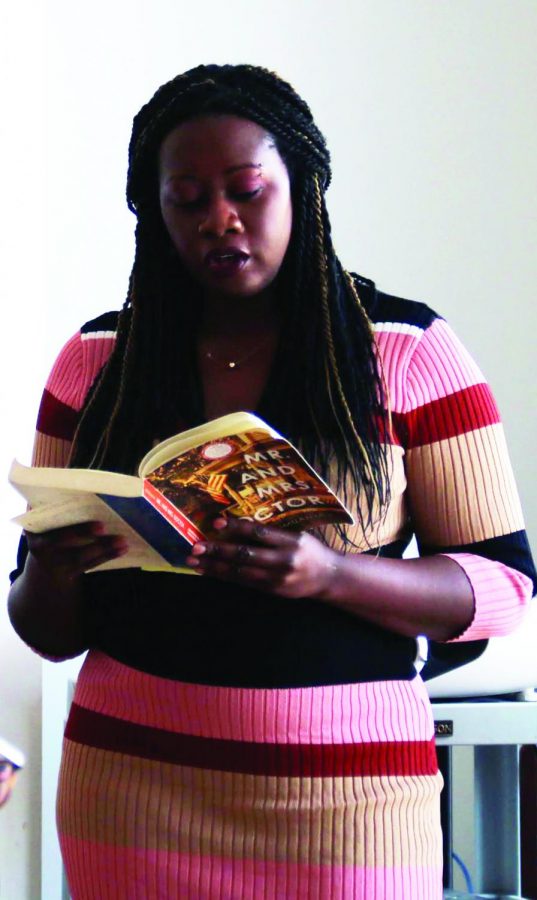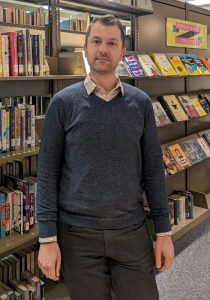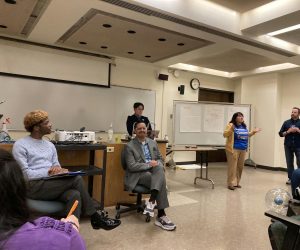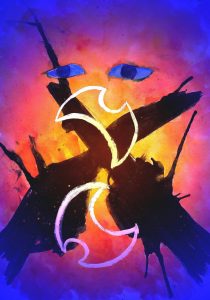The 82: A reading by Julie Iromuanya
Iromuanya is a novelist and former English professor at NEIU.
February 25, 2020
Novelist Julie Iromuanya read some of her work during the “82” event that took place on Thurs., Feb. 20 in the Pedroso Center. Coordinator Amanda Goldblatt explained how the “82” has events similar to this reading two or three times a semester, where writers are invited to share their work. “The ‘82’ is run by the creative writing minor, and we have local or Chicago writers come to the event,” Goldblatt told The Independent. The event is named after the CTA’s Kimball bus line that many students at NEIU take to school.
Iromuanya was an English professor at NEIU from 2012 to 2015 and is currently at the University of Chicago teaching creative writing and African literature. The Coffee House Press published Iromuanya’s “Mr. and Mrs. Doctor” in 2015. The book was “a finalist for the PEN/Faulkner Award, the PEN/Robert W. Bingham Prize for debut fiction, the Etisalat Prize for literature (now nine mobile prizes for literature) and the National Book Critics Circle John Leonard Prize for debut fiction,” explained Goldblatt as she introduced Iromuanya.
The book is about Ifi and Job, a Nigerian couple who have an arranged marriage. While living in Nebraska, Ifi finds out that Job lied to her about being a doctor. While the story itself is great, the book also illustrates Nigerian culture. During the event, Iromuanya read an excerpt from her published book and another book that she is currently working on.
Regarding both her writing and her process of discovering inspiration, Iromuanya said that she pulls from stories that she hears from people she knows and meets. “One of the things that I try to do with my writing, in particular, is to think about questions that I have about the world,” she said. She included how her knowledge of creative writing is helpful during the beginning stages of her writing process: “Creative writing is a way to seek answers to my questions. I did this as a scholar too, where I wrote a paper and my thesis, and I used creative writing as a way to dramatize my answers to those questions.”
In regards to her writing process, Iromuanya uses each step to put as much information about the characters she is writing about on the page. “During my first draft, I’m just writing and getting the story out. As a writer you enter a dream space, where you are in the world of your characters and following them, trying to keep up with them.” She begins to take a different approach during her revision process: “Revision is then when you go back and try to carve out the story with the material that you have, like a sculptor. You have to shape the material and you begin to think about things like the plot, the character development, all of those kinds of things.”
Iromuanya also included advice that she has for writers and students: “The primary thing is to write. We focus on the publishing and the authoring part of it, which I think deals with business. The more you write, you begin to create a practice space for yourself. Even for those who have busy lives. It is important to carve out some time and space to write and practice.”
Iromuanya also champions perseverance: “You’re going to face all types of rejection, and people who are not the right readers for the work. You’ve got to be able to believe in yourself enough to keep working and finishing your piece. I’ve rewritten “Mr. and Mrs. Doctor “so many times.”
In her writing, Iromuanya wishes to include some “pearls of wisdom” for her readers: “One of the things I try to do as much as I can, and this gets me in trouble as a writer, is to expose humans in all of their complications, and all of their elements of vulnerability and fault or shame.” Iromuanya added how she does this to show readers true stories, rather than hiding the truth: “I do think that there is a desire to make characters or to tell stories about people in their best light. I don’t think that those are true stories because I think that we are as complicated as human beings.”
Iromuanya concluded the reading by explaining how everyone should be able to connect to some story or work, and she hopes that her writing does the same for people.








